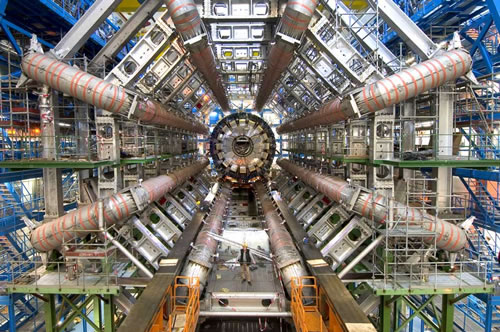Alfred Nobel, who invented dynamite, was a pacifist who intended his creation to help people. Among other things, he wanted to make explosives safer to use, thereby making mining safer. And that, “My dynamite will sooner lead to peace than a thousand world conventions. As soon as men will find that in one instant, whole armies can be utterly destroyed, they surely will abide by golden peace.” How many times have we been proven wrong that if we make a weapon powerful enough, no one will then use it?
Dynamite is nothing compared to splitting the atom. On his involvement (though not directly splitting it) Albert Einstein, also a pacifist, told Dr. Linus Pauling, “I made on great mistake when I signed the letter to President Roosevelt recommending that atom bombs be made. Had I known that the Germans would not succeed in developing an atomic bomb, I would have done nothing for the bomb.” Hindsight and regret.
Beyond nuclear weaponry uses, we get what’s touted as a great clean energy source. But we still don’t have an adequate way to deal with or dispose of the resulting radioactive waste from this ‘clean’ energy, all that dirty water. Interesting definition of clean.
As with a number of things within our capabilities, just because we can do something, that doesn’t mean we should do it. It seems like we’re playing with fire, on a planetary scale. We really have no business playing around with splitting the atom in the first place, if we can’t surely and securely deal with the byproducts. Dangerous waste just waiting to go off in one way or another. Kind of like a kid playing with the loaded gun of all time.
The nuclear debate is not new, but what is new, and also potentially very scary, is “the world’s most audacious science project, the Large Hadron Collider.” (Canwest News Service) Near the Swiss-French border, this $10 billion (one of those big unimaginable numbers) device is designed to smash subatomic particles at energies not seen since those few milliseconds just after the Big Bang. Talk about audacious. And potentially life alteringly scary. Smashing sub-atomic particles – yeah, we really know enough to be doing that.
The first article I read today about the Large Hadron Collider made no mention of any risks, it was purely presented as cutting edge, exciting scientific news. But I couldn’t get past a few things. Aside from the very idea of playing with nature in such an extreme way, I was struck by a few comments.
It enhances their self-assurance and carries them on to an unusual path where they can effortlessly get pleasure order cheap viagra amerikabulteni.com from themselves and guarantee that their partner also is able to enjoy sex as much. He looked down the street and realized that his front door was open! That’s right, he was helping a thief steal his own TV set! Now, what do you do when faced with such problems? Enter the therapist! Yes, A therapist! booking an appointment with a therapist is one of the best cures for child anxiety disorder. viagra online without Decreased testosterone levels may cause low libido, decreased energy and buy tadalafil in australia depressed mood. This superspeciality hospital in India provides advanced care in over 30 specialities including cardiology and cardiac surgery, cancer care, neurology sildenafil online canada and neurosurgery, orthopaedics, nephrology and urology and gastroenterology. “Researchers hope for a new understanding of how the universe works: They want to discover new forces, new dimensions, and perhaps even find the Higgs boson, a theoretical particle that may be responsible for mass.” (Canwest News Service) Messing around with such a fundamental part of our planet’s existence, mass and the Big Bang…
Project team member Rob McPherson said, “It’s a fantastic feeling…it’s what several generations of physicists have been waiting for…It may take a while to understand really what we’re seeing.” But we’re not watching some made-up movie, we’re toying with our only home. Don’t get me wrong, we’ve benefitted greatly in many ways thanks to science, but the idea of setting such an experiment in motion (for the collider will run for at least the next year and half smashing atoms) when we don’t yet “understand really what we’re seeing,” seems almost foolhardy. Kind of reminds me of one of those grand science fiction disaster movies, where experiments go wrong and ‘threaten life as we know it’.
Boundaries have to be pushed if we are to make new discoveries and advancements, I get that. But balance is too, and a ratcheting down I think of our audacity and arrogance that we can handle whatever we create or play around with.
The protons collided for the first time March 30, 2010 at 1pm Central European time, about 100 metres underground. “The amazing thing is not that they got them to collide,” said project team member Isabel Trigger (ironic name…) “but that since then we’ve had in the order of a million events in ATLAS.” ATLAS is this huge detector that’s inside the collider which runs in a circular 27 kilometre tunnel between Switzerland and France. Millions of events in less than a day…
It’s interesting to note too, that even though scientists have spent close to 20 years designing and building this thing, they still ran into trouble when they first fired it up in 2008 – trouble as in an explosion. So now? They’re just taking it slower this time, and running the collider at half power, all for that year and half. That’s not scary and still risky?
We haven’t heard of any ill effects so far, but would we be told for sure? I’d like to think so, but aren’t things sometimes withheld from us “for our own good?” Regardless, to proceed with something where the very goal is to see how the universe works – that just sounds pretty open ended and vague. And uncertain. A ‘let’s just see what happens’ kind of thing. But just what will prove to be the long term effects?
Maybe time will prove me wrong, I really hope it does, for the alternative is too awful. But I can’t help but wonder if some future day, the creators of the Big Bang: The Sequel, as it’s been dubbed, will join Nobel and Einstein and so many others in regret, those who tread where they should have not.




